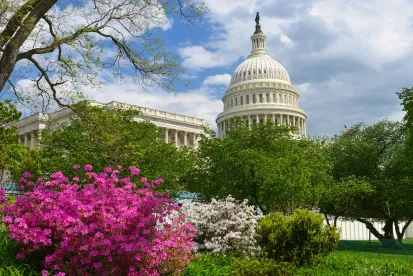On March 11, 2021, the American Rescue Plan Act (“ARPA”) took effect. While most of the media attention was on the stimulus payments to individuals and the overall cost of the act, this legislation also extended the tax credits available to small businesses that voluntarily offer paid sick leave and emergency family leave to employees facing difficulties caused by the coronavirus pandemic. Besides extending the availability of tax credits, ARPA also expanded the situations under which employees are eligible for both types of leave to include situations related to receiving a COVID-19 vaccine or diagnosis.
Requirements of the Families First Coronavirus Response Act (“FFCRA”)
Last spring, in response to the coronavirus pandemic, Congress enacted the FFCRA, which mandated that private employers with less than 500 employees provide:
-
Up to two weeks (80 hours) of paid sick leave at the employee’s regular rate of pay to employees unable to work because of government-imposed quarantine, quarantine required by a healthcare provider, or because the employee was experiencing COVID-related symptoms and seeking a diagnosis;
-
Up to two weeks (80 hours) of paid sick leave at two thirds of the employee’s regular rate of pay to employees unable to work because of the need to care for an individual subject to quarantine, the need to care for a child whose school or childcare provider closed due to COVID-19, or to employees experiencing a “substantially similar condition,” as specified by the Secretary of Health and Human Services; and
-
Up to an additional 10 weeks of paid family and medical leave at two thirds of the employee’s regular rate of pay to employees who have been employed at least 30 calendar days and are unable to work due to a bona fide need to care for a child whose school or childcare provider is closed due to COVID-19.
The requirement that covered employers provide these benefits expired on December 31, 2020. Under legislation enacted at the end of 2020, however, Congress provided that employers that voluntarily offered these benefits could continue to receive tax credits for the costs of providing the additional leave through March 31, 2021. ARPA expanded the tax credit availability through September 30, 2021 while also making some minor, but significant, changes to the leave benefits. Again, it is important to remember that providing the paid sick and expanded family and medical leave remains voluntary.
Changes to Paid Sick Leave and Expanded Family and Medical Leave Under ARPA
Besides extending the eligibility period for tax credits to cover voluntary paid employee leave, ARPA also made a number of other changes to the paid sick leave and expanded family and medical leave benefits.
-
First, ARPA expands the situations under which an employee is eligible for paid leave to cover employees who are seeking or waiting for the results of a COVID-19 test, employees who are getting a COVID-19 vaccine, and employees who are unable to work because of the effects of a COVID-19 vaccine. In addition, ARPA expands the eligibility for emergency family and medical leave to include any condition for which an employee would be eligible for paid sick leave. Now, employees can receive up to 14 weeks of paid leave if they are subject to a quarantine ordered by the government or a health care provider or if they contract COVID-19 - two weeks at their regular rate of pay as emergency paid sick leave and up to 12 weeks at two thirds of their regular rate of pay as family and medical leave.
-
Second, ARPA “refreshes” paid leave eligibility as of April 1, 2021. That is, an employee who exhausted their eligibility for paid sick leave or expanded family and medical leave will be eligible for additional leave as of April 1, 2021. Thus, employers will be eligible for tax credits to cover an additional two weeks of paid sick leave and 10 weeks of family and medical leave.
-
Third, ARPA increases the tax credit limit for covered wages for expanded family leave from $10,000 to $12,000 per employee.
-
Fourth, ARPA imposes certain restrictions on receiving credits if an employer does not uniformly offer the leave provisions. No tax credits are available for employers who offer paid FFCRA leave only to highly compensated employees, full-time employees, or who offer the leave on the basis of tenure. Simply put, if employers do not make the voluntary leave available to all their employees, regardless of job category or seniority, they may not be eligible for the tax credits.
-
Fifth, ARPA provides for reimbursement to employers subject to a collective bargaining agreement for pension plan and apprenticeship program contributions that are allocable to employee paid sick and expanded family leave. Thus, employers with unionized workforces may be eligible for more credits than they were eligible for previously.
The Bottom Line
ARPA extends the availability of employer tax credits for paid sick leave and emergency family and medical leave provisions of the FFCRA through September 30, 2021, while also making a few changes to the rules governing the leaves. Providing employees with paid sick leave or paid emergency family and medical leave remains voluntary, however.
In addition, we can expect further guidance from the Department of Labor as to how these new provisions will be implemented.






 />i
/>i
